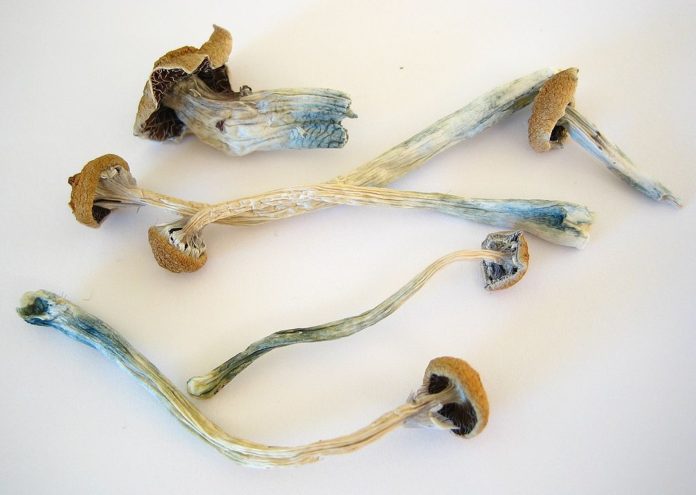

An initiative allowing the use of psychedelic mushrooms has reached the November ballot in Colorado.
The Natural Medicine Health Act of 2022 hopes to address a variety of items, including mental health issues, through natural treatment. Initiative 58 gathered more than 225,000 signatures, when it only needed about 124,600. Under the act, penalties for personal use for those 21 and older would be removed. Growing and giving them away would also be allowed, but no retail sales would be permitted.
Josh Kappel, a founding partner at Vicente Sederberg LLP, which has offices across the country including in Denver, is one of the drafters of the measure. He said one of the main goals is to help people with mental health issues by using psychedelic treatments.
Kappel said the act creates a regulated access model where adults would be able to go to licensed healing centers for mushroom treatment services. Those seeking services would take the medicine with a licensed facilitator, who would have specific training requirements. Under the proposed act, there will also be regulations concerning the manufacturing, cultivation, delivery and sales between the healing centers and other permitted entities.
“This is regulatory guidance for facilitators to be able to go to people’s homes or to nursing homes … and for adults to be able to take … psilocybin at their home or nursing home, or another healthcare facility, under the guidance of a facilitator,” Kappel continued.
Facilitators would be licensed by the Department of Regulatory Agencies. They could be a therapist or doctor, but they don’t have to be one of those professions. DORA would create training requirements that consider someone’s background, while not mandating a particular background.
The training requirements would also be tiered based, depending on why someone is coming into the healing center. DORA would also be working with a Natural Medicine Advisory Board which would make recommendations for areas such research, regulatory considerations and correct content for training programs.
Back in 2019, the City of Denver voted to make the enforcement of laws that prohibited psilocybin its lowest priority. While that measure was for the city, the Natural Medicine Health Act is for the whole state of Colorado.
Kappel said advocates have run into some roadblocks concerning psilocybin in this proposed act, but they haven’t let it get in their way.
“I think a lot of people don’t understand the [ethics] of using psilocybin to treat mental health issues,” he said. “I think a lot of our roadblocks have just been around education … and I think a lot of people confuse this measure with cannabis. Whereas, we’re not legalizing sales, we’re not creating dispensaries.”
But why Colorado and why magic mushrooms?
Kappel cited multiple studies that have shown promising results for using psilocybin to treat mental health issues. One institution mentioned by Kappel was Johns Hopkins University. According to a study from that school, the use of psilocybin in treatment relieved symptoms related to depression.
“What this measure would do is provide Coloradans, who already suffer from some of the worst mental health in the country, access to a treatment that has been proven to be very effective by a lot of major institutions,” Kappel said.
According to the organization Mental Health America, when taking into account both access to care and those who have mental health issues, Colorado ranks last in the country.
Record sealing is another aim of the act. If someone had been convicted for possession that would be legalized under the initiative, they could file a petition with the state court to seal the conviction.
As for a timeline, rules for qualifications would need to be adopted for facilitators by Jan. 1, 2024. By September 2024, applications for licensure will then be accepted and need to be decided upon within 60 days. Other psychedelics could be approved in 2026 including DMT, ibogaine and mescaline.
Initiative 61, another measure related to psychedelics that was trying to get on the ballot in November in Colorado, failed to get enough signatures, according to a spokesperson for the Colorado Secretary of State’s office. One of the major differences was Initiative 58 had more regulations than 61.
Law Week Colorado did reach out to the Colorado Attorney General’s Office for comment on Initiative 58 and a spokesperson wrote the AG hasn’t taken a position on the matter at this time.

